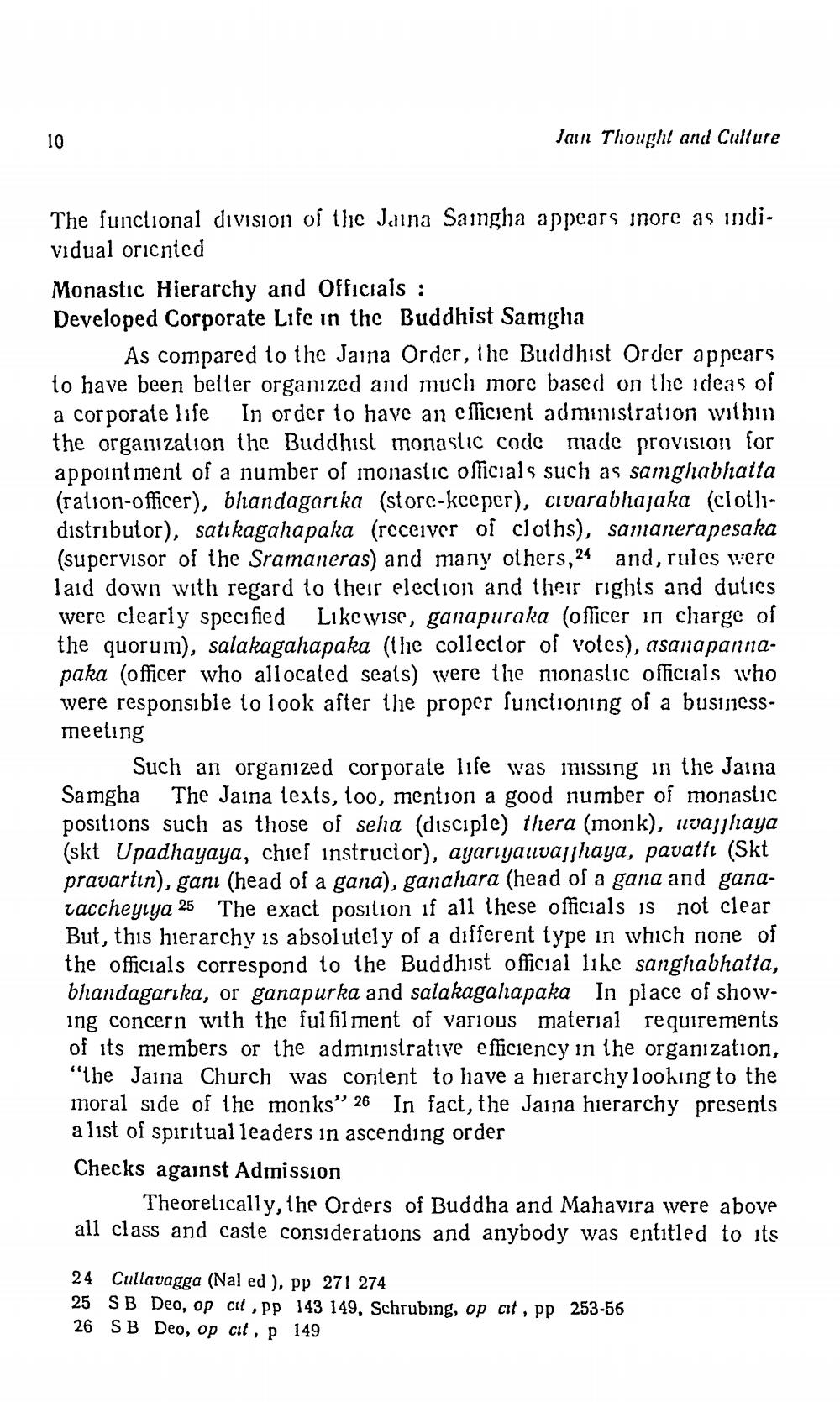________________
Jain Thought and Culture
The functional division of the Jaina Saingha appears inorc as individual oricnted Monastic Hierarchy and Officials : Developed Corporate Life in the Buddhist Samgha
As compared to the Jaina Order, the Buddhist Order appears to have been better organized and much more based on the ideas of a corporate lise In order to have an essicient administration within the organization the Buddhist monastic code made provision for appointment of a number of inonastic officials such as samghabhatta (ration-officer), bhandagarika (storc-keeper), civarabliajaka (clothidistributor), satıkagahapaka (receiver of cloths), samanerapesaka (supervisor of the Sramaneras) and many others, 24 and, rules were laid down with regard to their election and their rights and duties were clearly specified Likewise, ganapuraka (ossicer in charge of the quorum), salakagahapaka (the collector of votes), asana pannapaka (officer who allocated seats) were the monastic officials who were responsible to look after the proper sunctioning of a businessmeeting
Such an organized corporate life was missing in the Jaina Samgha The Jaina texts, too, mention a good number of monastic positions such as those of seha (disciple) thera (monk), uvajjhaya (skt Upadhayaya, chief instructor), ayarıyauvajjhaya, pavattı (Skt pravartin), ganı (head of a gana), ganahara (head of a gana and ganacaccheyıya 25 The exact position if all these officials is not clear But, this hierarchy is absolutely of a different type in which none of the officials correspond to the Buddhist official like sanghabhatta, bhandagarika, or ganapurka and salakagahapaka In place of showing concern with the fulfilment of various material requirements of its members or the administrative efficiency in the organization, "the Jaina Church was content to have a hierarchy looking to the moral side of the monks” 26 In fact, the Jaina hierarchy presents a list of spiritual leaders in ascending order Checks against Admission
Theoretically, the Orders of Buddha and Mahavira were above all class and caste considerations and anybody was entitled to its
24 Cullavagga (Nal ed ), pp 271 274 25 SB Deo, op cit, pp 143 149, Schrubing, op cit, pp 253-56 26 SB Deo, op cit, 149




